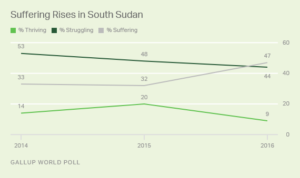San Jose, California — This city voted Tuesday night to require gun owners to carry liability insurance and pay an annual fee, in what’s believed to be the first measure of its kind in the United States.
The San Jose City Council overwhelmingly approved the measure despite opposition from gun owners who said it would violate their Second Amendment rights and promised to sue.
The Silicon Valley city of about 1 million followed a trend of other Democratic-led cities that have sought to rein in violence through stricter rules. But while similar laws have been proposed, San Jose is the first city to pass one, according to Brady United, a national nonprofit that advocates against gun violence.
Council members, including several who had lost friends to gun violence, said it was a step toward dealing with gun violence, which Councilman Sergio Jimenez called “a scourge on our society.”
Click here to view embedded media
Having liability insurance would encourage people in the 55,000 households in San Jose who legally own at least one registered gun to have gun safes, install trigger locks and take gun safety classes, Mayor Sam Liccardo said.
The liability insurance would cover losses or damages resulting from any accidental use of the firearm, including death, injury, or property damage, according to the ordinance. If a gun is stolen or lost, the owner of the firearm would be considered liable until the theft or loss is reported to authorities.
However, gun owners who don’t have insurance won’t lose their guns or face any criminal charges, the mayor said.
The insurance would be purchased through homeowner’s or renter’s insurance and would cover everyone in a gun owner’s household, CBS SF BayArea reports.
The council also voted to require gun owners to pay an estimated $25 fee, which would be collected by a yet-to-be-named nonprofit and doled out to community groups to be used for firearm safety education and training, suicide prevention and domestic violence and mental health services.
The ordinance is part of a broad gun control plan Liccardo announced following the May 26 mass shooting at the Santa Clara Valley Transportation Authority rail yard that left nine people dead, including the employee who opened fire on his colleagues and then killed himself.
At an hours-long meeting, critics argued that the fee and liability requirements violated their right to bear arms and would do nothing to stop gun crimes, including the use of untraceable, build-it-yourself “ghost guns.”
“You cannot tax a constitutional right. This does nothing to reduce crime,” one speaker said.
“People got killed and you got the audacity to come up in here and act like you’re going to be the savior of us all,” another said, according to CBS SF BayArea.
However, others strongly backed the measure.
“My daughter was shot and killed in San Jose so I know firsthand the terrible loss,” one supporter said, according to CBS SF BayArea.
“I lost one of my childhood friends Michael Rudometkin last year,” CBS SF BayArea quoted Council member Raul Peralez as saying.
The measure didn’t address the massive problem of illegally obtained weapons that are stolen or purchased without background checks.
Liccardo acknowledged those concerns.
“This won’t stop mass shootings and keep bad people from committing violent crime,” the mayor said, but added most gun deaths nationally are from suicide, accidental shootings or other causes and even many homicides stem from domestic violence.
Liccardo also said gun violence costs San Jose taxpayers $40 million a year in emergency response services.
Some speakers argued that the law would face costly and lengthy court challenges.
Before the vote, Sam Paredes, executive director of Gun Owners of California, said his group would sue if the proposal takes effect, calling it “totally unconstitutional in any configuration.”
“Vote ‘no’ on this ridiculous law that’ll get shot down in the courts before you waste more of San Jose’s money,” another said, according to CBS SF BayArea.
But Liccardo said some attorneys had already offered to defend the city pro bono.
First published on January 26, 2022 / 6:37 AM




